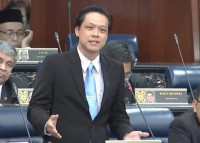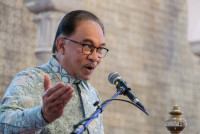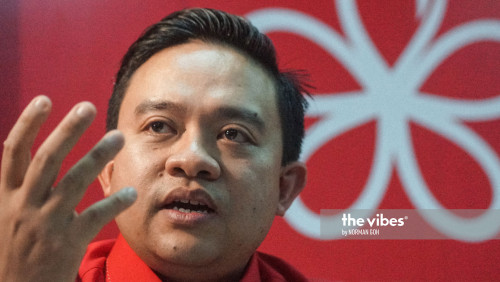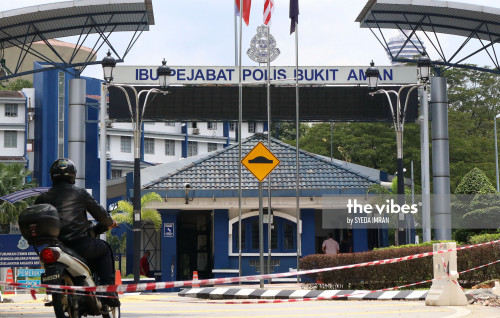
ONE of Tun Dr Mahathir Mohamad’s enduring mistakes is to insist that wealth redistribution under the New Economic Policy (NEP) is what will make the country stable, when for the vast majority of Bumiputeras, it does not make an iota of difference.
What would have really made a difference and provided stability, safety and well-being is to increase incomes for all people by ensuring a more productive economy, where competence is placed above corruption and cronyism, and the income gap is reduced.
That will help ensure fair living wages for everyone and an opportunity for all to succeed in an environment of growth, increased productivity, good and cheap education for their children, and policies that will foster this very environment while still ensuring the creation of wealth.
Instead, Dr Mahathir focused on corporate equity ownership, which was not even a key target of the NEP, the twin main objectives of which were to eliminate poverty irrespective of race and the identification of race with economic function.
The equity ownership target of 30% was an administrative one, but it became the de facto measure of the policy’s success or failure. However, the measurement of that target was fatally flawed because it used the par or nominal value of shares, and not the market value. Government and state share ownership was neglected in the measurement.
For example, Maybank, whose par value is RM1 and market value about RM7 per share, is valued at a seventh of its market value of about RM80 billion. Thus, Bumiputera trust agency Permodalan Nasional Bhd’s roughly 50% stake is valued at around RM5.7 billion instead of RM40 billion, an undervaluation of RM34.3 billion.
Petronas, the largest Malaysian company by far and which could account for a huge chunk of total market value if listed, is fully government-owned. If its wealth was allocated according to population breakdown, some 67% would go to Bumiputeras, and this would easily tip the balance. The 30% Bumiputera target would have been achieved a long time ago.
The 30% equity target was, and still is, a powerful tool because it can be used to distribute patronage (effectively, money) not to all Bumiputeras, but a select privileged few with some money and access to a lot more via bank financing.
Dr Mahathir went about creating opportunities to carve out profitable entities within the government through his privatisation, passing these to his cronies and those of his finance minister, Tun Daim Zainuddin. His non-Bumiputera cronies still had to pass out 30% to Bumiputeras, some of whom became fabulously rich merely by being sleeping equity partners.
He ignored the hard business of improving education standards, developing manpower, improving productivity and reducing the income (not wealth) gap.
It is no wonder that his vision of attaining developed-nation status by meeting the World Bank’s benchmark standard of income per person could not be achieved this year, the target year for Wawasan 2020, or Vision 2020. Instead, he lives to see his vision crumble to dust because of his own series of mistakes that sidelined the creation of income and a more equitable way of sharing it.
But in true Mahathirian style, he fails to see this. For him, the paramount target is the 30% equity target that Umno/Barisan Nasional, and even the Pakatan Harapan government, continued to understate through wilful mistakes in measurement, which include excluding government stakes.
The figure for Bumiputera share ownership was, believe it or not, 16.2% in 2015, down from 23% in 2011, said then economic affairs minister Datuk Seri Mohamed Azmin Ali, according to a Bernama report in October last year. Why the measurement is so out of date is a mystery.
“Bumiputera equity ownership has not only failed to reach its target, but dropped. Non-Bumiputera equity ownership has also declined to 30.7% in 2015 compared with 34.8% in 2011, while foreign equity ownership has increased to 45.3%,” said Azmin when announcing the Shared Prosperity Vision under Dr Mahathir’s PH government.
Dr Mahathir, who made known his intention to contest the next general election in an interview with Singapore’s Sunday Times last weekend, remains woefully recalcitrant. Here’s what the newspaper reported: “Malaysia’s raft of affirmative action policies that largely benefit the Malay majority can be done away with if interracial wealth disparity is reduced as espoused under Wawasan 2020, said the three-decade-old vision’s architect, Tun Dr Mahathir Mohamad.”
He said in the interview: “But endemic corruption has hampered progress towards becoming a developed nation and attempts to redistribute wealth that began half a century ago under the controversial NEP.
“If you reduce the disparity, the jealousy and the envy will be reduced. The country will be stable; then the country will grow. When the difference in terms of wealth is not so big, it is all right. We can do away with that (affirmative action).
“Many of them failed because they sold the licences, contracts and permits. For a short while, they had money, but they didn’t grow.”
He needs to realise that wealth ownership is always going to be skewed – he will ruin the economy if he forces a redistribution of wealth. Worldwide, 1% of people own 50% of wealth, and it’s likely to be similar here. Thus, redistribution is a massive task.
Much easier to do is to narrow the income gap through fair wage policies and productivity increases to ensure that everyone eventually has a good and comfortable living income, which will feed back into economic growth through increased spending.
You can’t equalise outcomes, but you can definitely do more to equalise opportunities. From the 1980s (Dr Mahathir became prime minister for the first time in 1981) till now, a period of 39 years, not enough has been done in this direction. The income gap has widened.
Dr Mahathir has to bear a huge part of the blame as prime minister for 24 years, or 60% of the said 39 years, and for setting the stage for Umno/BN malfeasance from the 1980s. – The Vibes, October 6, 2020
P Gunasegaram is editorial consultant at The Vibes. Among the most insidious sayings he has ever come across is this one attributed to various persons: the end justifies the means.





















